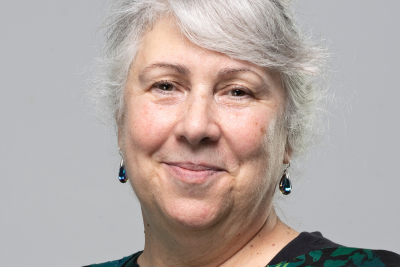STORMing Cancer
Led by Professor Thea Tlsty (University of California, San Francisco, USA).The challenge
STORMing Cancer tackled the cancer causes challenge which aimed to determine the mechanisms that cause cancer without known mutations, such as obesity or inflammation. Despite chronic inflammation being linked to an astounding 20-25% of cancers around the world, when the the challenge was set in 2017, very little was known about how it drives the development of the disease. While most treatments directly target a tumour cell, STORMing Cancer turned its focus to the inflamed, but otherwise healthy, cells and tissue components in its surrounding neighbourhood. The team investigated the mechanisms underlying how chronic inflammation promotes the transformation of healthy cells into cancer cells. STORMing Cancer employed a myriad of techniques to unravel the complex interactions between cancer cells and non-cancerous and extracellular components within the inflamed tumour microenvironment. The team hopes its work will inform on how to restore these dysregulated surroundings to a normal state, with the potential to gradually guide the tumour back to a benign state or prevent it from further growth.
At a glance
Team and leadership
STORMing Cancer was led by:
This multidisciplinary team of over 60 scientists brought together expertise from biology, physics and engineering from across three continents.
Tackling the cancer causes challenge
Inflammation is a double-edged sword in the immune system’s arsenal. While it helps to eliminate infectious organisms and diseased cells, this tightly regulated process can sometimes spiral out of control. Central to understanding this fine balance, is untangling the complex web of interactions between cells – whether cancerous or not – and their microenvironment. Chronic inflammation gradually alters the extracellular matrix (ECM) structure, releasing factors that promote tumour cell growth, which is further fuelled by pro-inflammatory molecules released from stromal cells. Together, these changes disrupt a cell’s normal interactions with its surroundings, pushing it towards malignancy.
The STORMing Cancer team took a multi-faceted approach to understand how these interactions change throughout the course of inflammation. The team hoped to identify key moments that could be targeted to slow, prevent or reverse carcinogenesis. The team focused on chronic inflammation-associated cancers (CIACs), such as oesophageal, lung, liver, ovarian and mesothelioma, and hypothesise that there is an overarching inflammatory process driving these tumour types. The team set out to pursue the following aims in order to dissect the underlying mechanisms:
- Define changes in overall cell and ECM composition during CIAC progression
- Map inter-cellular communication circuits
- Develop in vitro and in vivo models of CIAC progression
Towards these aims the team used diverse imaging, analytic, and simulation technologies, and approaches including single-cell transcriptomics, CODEX and mathematical modeling of cellular community dynamics. The team also used cutting –edge model systems, from mouse models and organoids to human organ-on-a-chip microfluidic and air-liquid interface culture.
The team hypothesised that by providing a complete understanding of the dysregulation of tissue interactions, as opposed to focusing solely on defects within the cancerous cell, it will open up enormous therapeutic opportunities. The team's overarching goal was that its work eventually allow the development of stromal reprogramming therapies, as well as methodologies to predict clinical outcome in patients with premalignant disease.
Looking ahead
Although the link between inflammation and cancer was first observed in 1863, over 150 years later, STORMing Cancer hoped to finally unravel this mystery. The team’s strategy not only held promise for guiding cancer cells back to a healthy state, but also mitigate the detrimental effects of inflammation in conditions like inflammatory bowel disease and Barrett’s oesophagus, which significantly increase the risk of developing cancer.


